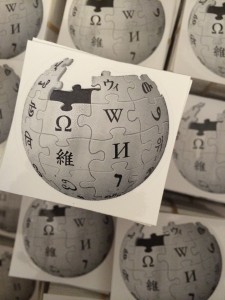 Many people argue there’s a crisis of information in the 21st century. Facts come wrapped in claims and counterclaims, they say, with dubious sourcing and various grains of credibility. This generation of students sees digital literacy as a core skill set. How can instructors help students determine which facts are trustworthy?
Many people argue there’s a crisis of information in the 21st century. Facts come wrapped in claims and counterclaims, they say, with dubious sourcing and various grains of credibility. This generation of students sees digital literacy as a core skill set. How can instructors help students determine which facts are trustworthy?
Thomas Leitch’s book, “Wikipedia U: Knowledge, Authority and Education in the Digital Age,” examines questions of authority that Wikipedia skeptics often put front and center in their concerns. Leitch dedicates significant time to addressing those skeptics. Along the way, he shows how Wikipedia assignments can promote not only digital literacy skills, but an opportunity to instill a sense of personal mastery over knowledge that is unparalleled elsewhere in academia.
Leitch outlines connections between traditional knowledge production in academia and on Wikipedia. For students to evaluate online information, Leitch suggests, they should try producing it themselves. Wikipedia, he writes, is “an unexcelled laboratory for examining and comparing different models of authority” (page 6).
Leitch draws distinctions between “academic learning,” knowledge received in a classroom, and “higher learning.” Keeling and Hersh define higher learning as embracing “the active and increasingly expert use of that knowledge in critical thinking, problem solving and coherent communication” (86). Actively using Wikipedia, writes Leitch, becomes a kind of “apprenticeship” for students to practice exercising their own sense of authority over knowledge, what Char Booth calls “learning through Wikipedia.”
Traditional term papers, Leitch suggests, are a practice in passive, received knowledge. Leitch suggests that direct engagement with Wikipedia reveals how authority is created and defined.
Most undergraduate students aren’t given opportunities to practice their sense of authority and mastery. Students rarely confront challenges to their received knowledge in a classroom, meaning they have few opportunities to test or expand knowledge in the real world. Without examining the sources of their own authority, it’s difficult to determine for others.
Wikipedia becomes an experience, a field trip to the public sphere. Students engage in discourse firsthand, and see how information emerges from a consensus. Students witness the oftentimes heated debates between perspectives of knowledge. Knowledge, they learn, isn’t just something to consume. It’s something to engage with. Even, Leitch suggests, something to play with.
Leitch highlights play as often overlooked aspect of Wikipedia in academia. Wikipedia allows student editors to act out, and engage with, ever-changing claims to authority. When a student contributed to Wikipedia, they put their knowledge into play. Other editors can pick it up, and the play begins.
For an example, Leitch looks to Wiki Ed board member Bob Cummings’ Wikipedia assignment. Leitch writes that students “focus on Wikipedia as a platform for refining and extending their own authority, not as an authority to be accepted, questioned, or dismissed itself” (104). When claims to authority compete, students may defer to any outside claim. By contributing to a shared resource, they practice their authority. In turn, student editors see, firsthand, what determined their own claim to that authority. This prepares them, better than abstract exercises, to test the claims of others.
The history of this play is right there on any article’s talk page. Leitch encourages using this history for insight on how Wikipedians build knowledge. Examples range from arguments over “Grease” performer Olivia Newton-John’s national identity (British or Australian?) to deciding which assessments of the Bush administration are relevant.
This consensus-building process should be familiar to academics. Leitch suggests that Wikipedia isn’t so distinct. Rather, it reveals the evolution of knowledge unfolding in real-time, at a faster pace. Sources are still cited, evaluated, and critiqued. Wikipedians, and great scholarship, both “stand on the shoulders of giants.”
Wikipedia assignments challenge student editors to articulate and communicate their learning from many angles. This is a hallmark of higher learning. When students produce knowledge, they see how knowledge is produced. When students editors earn authority on knowledge, they see how authority is earned. Wikipedia is a rare opportunity to practice both.
